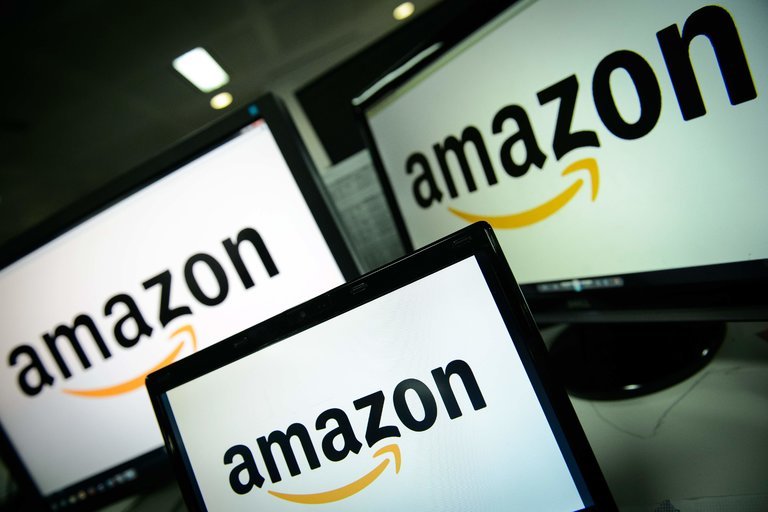Amazon pips US$ 1 Trillion
September 5, 2018 | Expert Insights

Amazon has briefly become the second US-listed firm to have a market value of more than $1 trillion (£779bn).
Founder of Amazon, Jeff Bezos is now worth over $165 billion, ahead of Bill Gates, whose wealth is estimated at just over $98 billion.
Background
Amazon is an American electronic commerce and cloud computing company that was founded on July 5th, 1994. It started as an online bookstore and later diversified to sell various commodities like electrical appliances and apparel. Today, it also produces consumer electronics like the Kindle e-Readers, tablets and more. Its market value had exceeded to $500 billion by July 2017.
Amazon posted earnings for the second quarter of 2017 that fell dramatically short of investor expectations, even as the e-commerce giant boosted revenue by 25%. Net sales roles to $38.0 billion in the second quarter. The tech giant reported $43.7 billion in earnings in 2017. This beat market expectations considerably as investors projected earnings of $42.1 billion. Amazon sales leaped by 34% over the previous quarter.
Jeffrey Preston Bezos is the founder, chairman, and chief executive officer of Amazon.com. He is now the richest person in history. On January 8th, 2018, Bezos’ net worth reached $105.1 billion. He has replaced the old record, held by entrepreneur Bill Gates whose net worth had surpassed $100 billion in 1999.
Analysis
Amazon hit the 13-digit milestone Tuesday morning when its stock briefly surged by 2% to $2050.50, passing the $2,050.27 mark to win a $1 trillion market capitalization.
The Seattle company couldn’t maintain the momentum until the closing bell, though — its shares finishing the day up 1.3%, to $2,039.51. That closing price left Amazon with a market cap of just under $995 billion.
Apple reached the same milestone in early August. In order to get to a $1 trillion market cap that Amazon has reached, one has to add up the valuations of the 14 largest big-box retailers ranked by 2017 revenues, from Walmart to Automation.
It took Apple circa 35 years to reach the trillion mark, and Amazon has achieved this feat in 21 years. They are now trailed by Microsoft and Alphabet, parent of Google, which is both roughly $150 billion short of the $1 trillion mark. It took Amazon just 16 days, compared to Apple's 622 days, to go from a market value of $600bn to $700bn, according to the Wall Street Journal. Read more about Apple hit the record and pushing the market value here.
This acceleration makes sense in a way because Amazon spent most of its time as a public company reporting losses or negligible profits. Founder Jeff Bezos consistently said he would rather reinvest sales revenue into the company to give it a better, more profitable future. It's a strategy that seems to have paid off: Amazon reported $2.5bn in profit last quarter, making it one of Wall Street's most profitable companies. Even more so than Apple, Amazon is in the business of how we'll live in the future.
Although nearly half of every dollar spent online by an American goes to Amazon, e-commerce still makes up just 9% of total retail sales here. And Amazon has also become the market leader in cloud computing, with its Web Services business line consistently beating expectations.
The firm is expected to account for roughly half of all online shopping sales in the US this year - and nearly 5% of the country's overall retail market, according to research firm eMarketer. It employs more than 575,000 people, a force nearly the size of Luxembourg's population. It provides logistics, storage, loans and a selling platform to hundreds of thousands of third-party merchants. Its profitable cloud computing division, which hosts huge swathes of the corporate world on its data servers, is the industry's global leader.
Counterpoint
While the actual dollar amount Amazon is worth doesn’t matter that much, what it reflects – $178 billion in annual revenue, over half a million workers, and an expanding reach into healthcare, advertising, artificial intelligence, facial recognition and transportation – could bring it greater scrutiny from politicians who have already warned that it is exerting too much control over our lives.
Politicians, including Donald Trump, have pointed attacks on its practices and accusing it of not paying taxes and further that Amazon underpays the U.S. Postal Service for delivering its packages. Trump has also attacked CEO Jeff Bezos over his separate ownership of The Washington Post.
Assessment
Our assessment is that it would be pertinent to look at Amazon through the lens of its total addressable market (TAM), a concept that is used by analysts to estimate what would happen if a given company performed incrementally better in its areas of business. We believe that there are no antitrust rules that could necessitate a break up of companies like Amazon, Alphabet and Google.








Comments